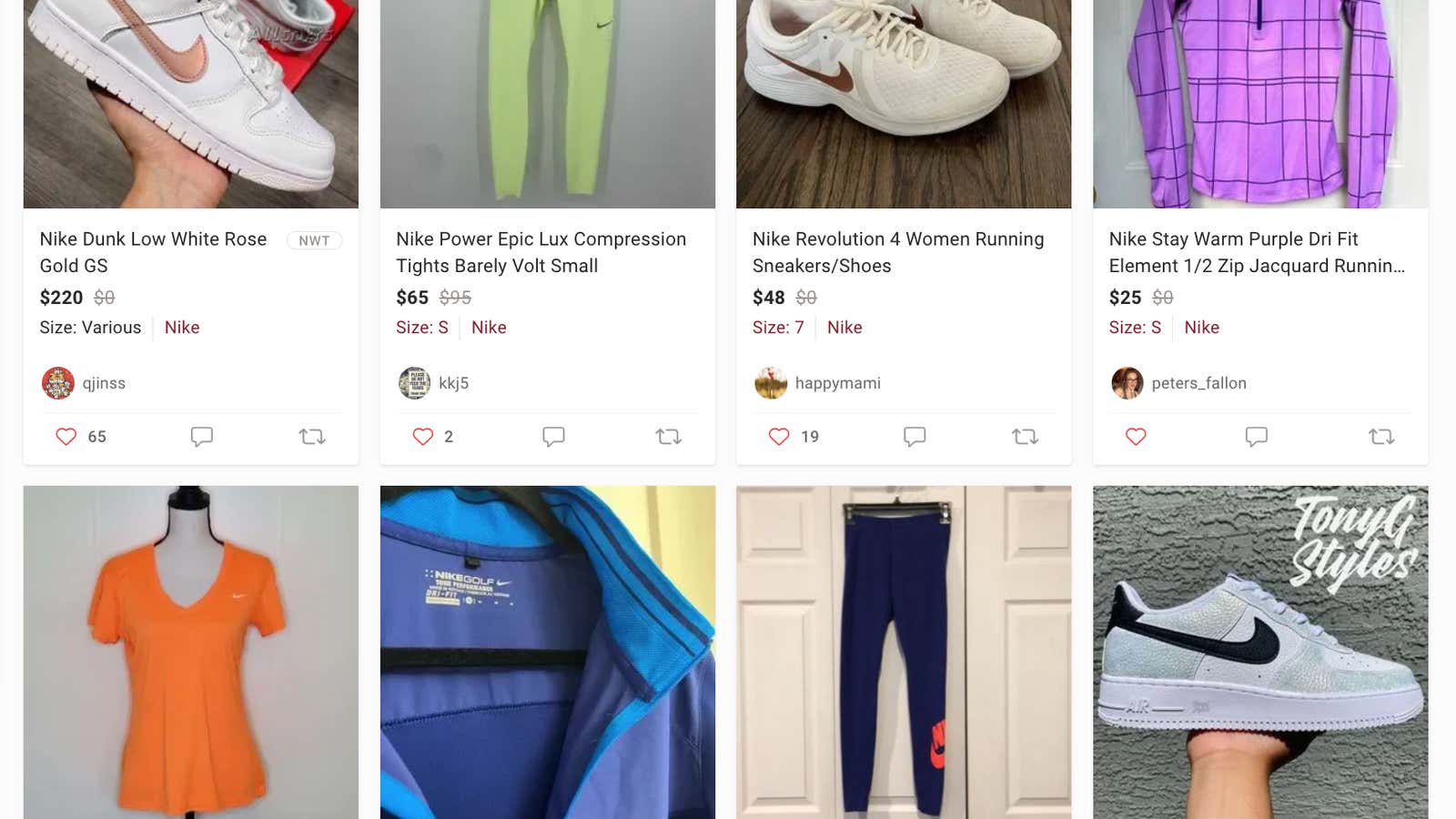The $1.2 billion sale of Poshmark to South Korean internet giant Naver Corp may have valued the resale platform much lower than its IPO price, but as Naver’s biggest acquisition to date, it’s still a large bet on consumers’ appetite for secondhand items.
“Re-commerce” will be the next global trend after convenient e-commerce, or fast fashion, Naver CEO Choi Soo-Yeon told Reuters, reasoning that Millennials and Gen Zers are both more concerned about eco-friendly practices and squeezed by inflation, which is expected to fuel the trading of pre-owned goods.
The global resale apparel market is expected to reach $218 billion by 2026, growing three times faster than the overall apparel market, according to ThredUp’s 2022 resale report. In the US, in particular, resale should reach $82 billion—more than double its current size—and between 2021 and 2026, it is expected to grow 16 times faster than the overall apparel market. Consumers surveyed by ThredUp also said they preferred secondhand goods to sustainably-made new fashion.
Meanwhile, Goodwill, a charity that operates a chain of thrift stores to fund its activities, said on Tuesday it would expand into online resale. Although it already operates thousands of brick and mortar stores selling pre-owned items across North America, it was only in April that it launched a mobile app. This week, it further announced it would create a new online platform, GoodwillFinds, that would sell a curated selection of goods with a focus on luxury brands.
“I feel this is a revolution that’s happening in retail right now where secondhand has finally crossed over and is seen as a force for good and not just a good deal,” GoodwillFinds chief executive officer Matthew Kaness said in an interview with Bloomberg.
Aftermarket is sending retail prices skywards
Although brands previously tended to ignore the secondhand market, more are beginning to get directly involved in resale. Labels from Patagonia to Oscar de la Renta and Lululemon have launched trade-in platforms.
The pre-owned market’s influence is showing up in other ways too. Their perceived resell value is a now factor in boosting their sales. John Idol, the CEO of the Capri Group conglomerate that owns brands like Michael Kors and Versace, said at a conference last month that consumers’ confidence in being able to resell their luxury goods had made shoppers more accepting of increasing product prices.
